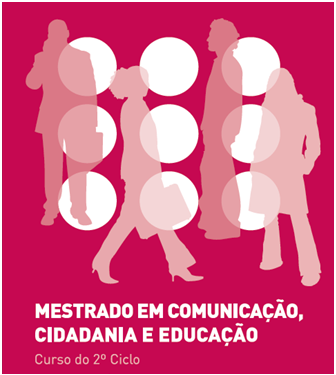Bibliografia da Prof. Renée Hobbs
Renée Hobbs é um dos nomes de referência da Educação para os Media nos Estados Unidos da América. É profesora associada de Comunicação da Temple University, em Filadelfia, co-directora do programa de doutoramento de Mass Media e Comunicação e directora do Media Education Lab. No seu site, disponibiliza vasta bibliografia, de que se destaca:
- Hobbs, R. (2004). Analyzing advertising in the English language arts classroom: A quasi-experimental study. Studies in Media & Information Literacy Education, 4(2).
- Hobbs, R. & Frost, R. (2003). Measuring the acquisition of media-literacy skills. Reading Research Quarterly 38(3), 330 - 355.
- Hobbs, R. (2001) Integrating media literacy into the study of world literature. The Writing Instructor.
- Hobbs, R. (2001). Classroom strategies for exploring realism and authenticity in media messages. Reading Online, 4(9). International Reading Association.
- Hobbs, R. & Frost, R. (1999). Instructional practices in media literacy education and their impact on students? learning. New Jersey Journal of Communication, 6(2): 123-148.
- Hobbs, R. (1999). Deciding what to believe in an age of information abundance. Sacred Heart Review, 42: 4 ? 26.
- Hobbs, R. (1998). The seven great debates in the media literacy movement. Journal of Communication, 48 (2): 9-29.
- Hobbs, R. (2003). Lo que docentes y estudiantes deben saber sobre los medios. In R. Morduchowicz (Ed.) Comunicacion, medios y educacion: un debate para la educacion en democracia. Octaedro: Barcelona, Spain (pp. 119 ? 124).
- Hobbs, R. (1998). Building citizenship skills through media literacy education. In M. Salvador & P. Sias (Eds.), The public voice in a democracy at risk. Westport, CT: Praeger (pp. 57 ?76).
- Hobbs, R. (1998). Media literacy in Massachusetts. In A. Hart (Ed.), Teaching the media: International perspectives. Mahwah, N.J: Erlbaum Associates (pp. 127 ? 144).
- Hobbs, R. (1996). Teaching media literacy. In E. Dennis and E. Pease (Eds.), Children and the media. New Brunswick: Transaction Press (pp. 103-111).
- Hobbs, R. (2002). Girls and Young Women's Understanding of Dietary Supplement Advertising: Assessing Critical Analysis Skills. A report to the Office on Women's Health, Department of Health and Human Services. February 28, 2003.
- Hobbs, R. (2001). Media literacy: Interpreting tragedy. Social Education 65(7):406-411. Available online: http://www.socialstudies.org/resources/moments/650702.shtml
- Hobbs, R. (2001). Improving reading comprehension by using media literacy activities. Voices from the Middle (National Council of Teachers of English), 8(4): 44 - 50.
Kubey, R. & Hobbs, R. (2001). Setting research directions for media literacy and health education. New Brunswick, NJ: Rutgers University, School of Communication, Library and Information Sciences.
- Hobbs, R. (2001). The great media literacy debates in 2001. Community Media Review 21: 17-23.
- Hobbs, R. (1999). Teaching the humanities in a media age. Educational Leadership, February: 56-62.
- Hobbs, R. (1998). The Simpsons meet Mark Twain: Analyzing popular media texts in the classroom. English Journal, January: 49-53.
- Hobbs, R. (1998). Start early to help children combat alcohol-saturated TV. AAP News 14(3): 20-21. (American Academy of Pediatrics).
- Hobbs, R. (1994). Teaching media literacy-- Yo! Are you hip to this? Media Studies Journal, 8 (4): 135 ? 145.
- Hobbs, R. & Folkemer, P. (1994). A new lens on Channel One. Education Week XIII, 18 (January 26): 37.
Subscrever:
Enviar feedback (Atom)





Sem comentários:
Enviar um comentário